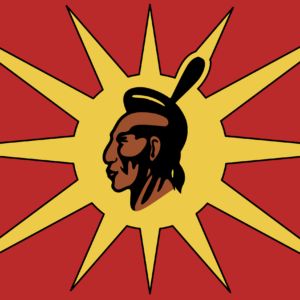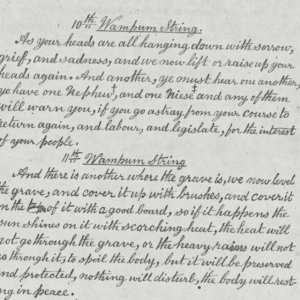No matter how you personally feel about cigarettes, it is important to recognize that for the last 30 years, the Native tobacco trade has been quietly laying the economic foundation for the resurgence of indigenous pride and self-determination. Herded onto reserves, kept from selling produce to nearby non-native markets, and formally deprived of basic legal, political and economic rights by an undeniably racist Indian Act, the tobacco trade has provided a viable way out from the nightmare of poverty and oppression for many Onkwehon:we people.
It is because of this threat of economic self-determination that the Canadian state is attempting to crush the Native tobacco trade through its imposition of the draconian Bill C-10.
Over the last several decades, the tobacco trade has strengthened the economic position of the Haudenosaunee in general and the Mohawks in particular as our people have become the producers and manufacturers of a tobacco product that is shipped to practically every Native community across the continent. These economic linkages and the literally billions of dollars involved in the trade, are introducing whole new possibilities for a resurgent and independent Native economy within this continent.
Whether in South Africa, Palestine, or Turtle Island, it has always been in the interest of every government striving to keep others under the yoke of colonialism to deny them independent economic opportunities. It can be no other way, for economic independence – control over the means of production on one’s own territory – is what creates the preconditions of political independence.
What scares the Canadian government is that there is now a layer of Haudenosaunee millionaires who happen to be firm believers in the reality of their own nationhood. With their own language, culture, common world view, and shared territory, Onkwehon:we people belong to nations that deserve the same rights as all others on the international stage. And now they are getting the economic clout to make it so.
Because of independent income through tobacco, and the thousands of jobs being provided in manufacturing, transport, and sales, Onkwehon:we people are now far less likely to be dependent upon the Government for the money it owes Native people. The lesser the involvement of the Indian Act in the lives of Onkwehon:we people the greater our sovereignty is manifested.
This is all well and good, but what of the non-native newcomers to this land? What position should they take on this matter?
To you, our non-native reader, the question boils down to whether or not Haudenosaunee people have rights that are worth respecting. If the Haudenosaunee have the right to carry out business on our own territory on our own lands and among peoples who have traded together for millennia before the first white man washed up on the shores of Turtle Island, then it is clear that the Canadian government has no business taxing the product of our labour.
We all know the negative aspects of tobacco consumption, but the sad fact is the Canadian government has left little other opportunity for advancement. Put bluntly colonialism has few other ways to create an economic surplus as quickly as by trading on the margins of the over-taxation of tobacco.
If you consider yourself a friend to Onkwehon:we people, and if you are ashamed with the long history of colonialism carried out by a Canadian government acting in your name, than the time has come to make your voice heard and to stand up against Bill C-10. The Harper government’s attempt to criminalize and destroy the possibility of independent economic development for Native people on this continent, will have many far reaching implications for all of us living on Turtle Island.







Comments are closed.